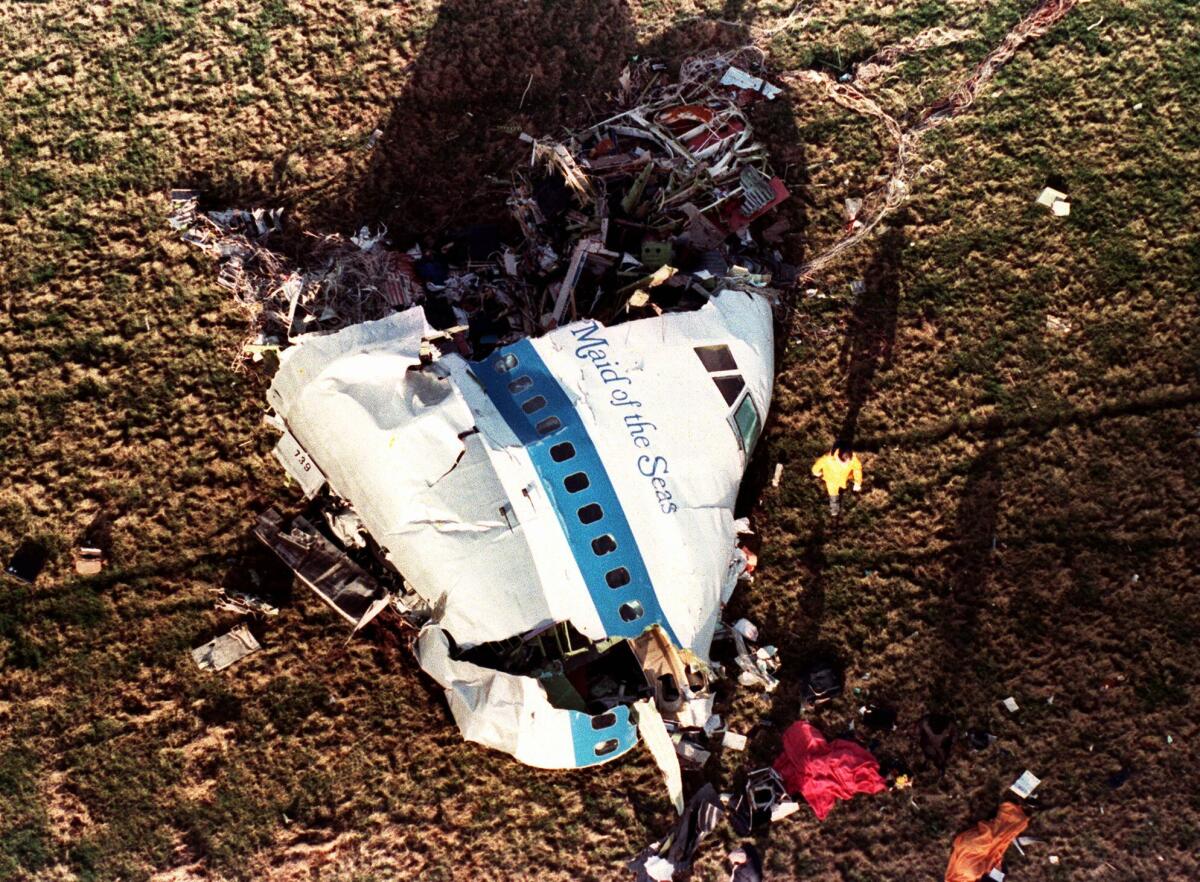U.S. plans new charges in 1988 Lockerbie bombing that killed 270

WASHINGTON — The Justice Department plans to unseal new charges in the coming days in connection with the 1988 bombing of a Pan Am jet that exploded over Lockerbie, Scotland, killing 270 people, according to a person familiar with the case.
The bombing of Flight 103, whose victims included dozens of American college students, spurred global investigations and produced sanctions against Libya, which ultimately surrendered two intelligence officials for prosecution before a Scottish court sitting in the Netherlands.
The announcement of a prosecution against an additional individual would carry personal significance for Atty. Gen. William Barr, who is leaving the post next week but held the same job, under President George H.W. Bush, when the Justice Department filed criminal charges against the two Libyans nearly 30 years ago. Monday is the 32nd anniversary of the bombing.
“This investigation is by no means over. It continues unabated. We will not rest until all those responsible are brought to justice,” Barr said at a 1991 news conference announcing the charges. “We have no higher priority.”
Five years ago, the FBI and Scottish authorities announced that they had identified two more Libyans as suspects in the bombing and sought to question them. The men were not publicly identified, but British media reports at the time said they were believed to be Libyan intelligence officials.
Libya refused to extradite the original two suspects to the U.S. but ultimately agreed to a deal to put them on trial in the Netherlands.
News of the expected criminal case was first reported by the Wall Street Journal and the New York Times. A person familiar with the Justice Department’s plan who was not authorized to discuss it publicly confirmed it to the Associated Press on condition of anonymity.
The New York-bound flight exploded over Lockerbie less than an hour after takeoff from London on Dec. 21, 1988. Among the Americans on board were 35 Syracuse University students flying home for Christmas after a semester abroad.
The attack, caused by a bomb packed into a suitcase, killed 259 people on the plane and 11 on the ground.
In 1992, the U.N. Security Council imposed arms sales and air travel sanctions against Libya to prod Col. Moammar Kadafi, the country’s leader, into surrendering the two suspects. The sanctions were later lifted after Libya agreed to a $2.7-billion compensation deal with the victims’ families.
One man, former Libyan intelligence official Abdel Basset Ali Megrahi, was convicted in the Netherlands of the bombing, and a second Libyan suspect was acquitted of all charges. Megrahi was given a life sentence, but Scottish authorities released him on humanitarian grounds in 2009 when he was diagnosed with prostate cancer. He died in Tripoli in 2014.
More to Read
Sign up for Essential California
The most important California stories and recommendations in your inbox every morning.
You may occasionally receive promotional content from the Los Angeles Times.










